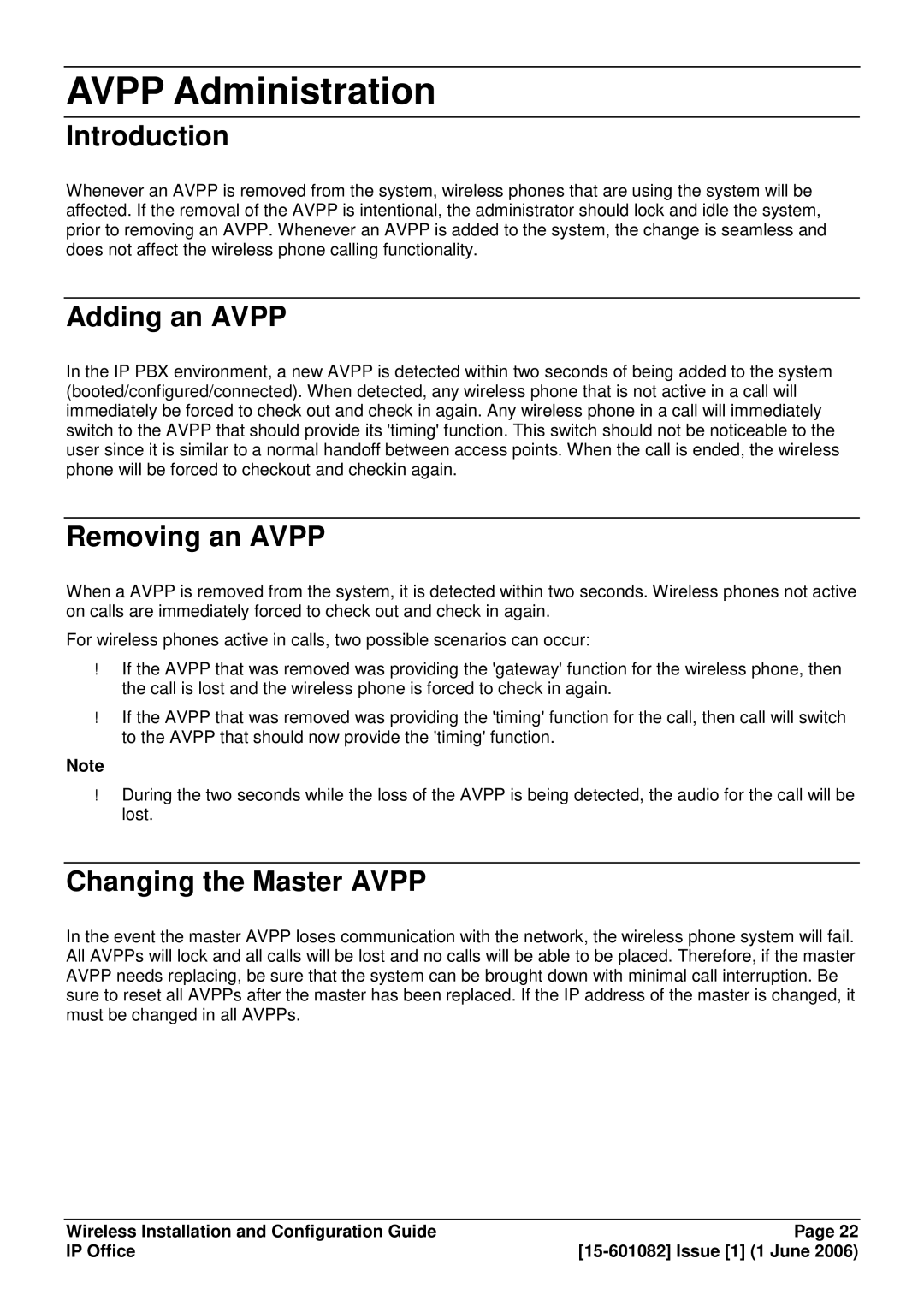
AVPP Administration
Introduction
Whenever an AVPP is removed from the system, wireless phones that are using the system will be affected. If the removal of the AVPP is intentional, the administrator should lock and idle the system, prior to removing an AVPP. Whenever an AVPP is added to the system, the change is seamless and does not affect the wireless phone calling functionality.
Adding an AVPP
In the IP PBX environment, a new AVPP is detected within two seconds of being added to the system (booted/configured/connected). When detected, any wireless phone that is not active in a call will immediately be forced to check out and check in again. Any wireless phone in a call will immediately switch to the AVPP that should provide its 'timing'function. This switch should not be noticeable to the user since it is similar to a normal handoff between access points. When the call is ended, the wireless phone will be forced to checkout and checkin again.
Removing an AVPP
When a AVPP is removed from the system, it is detected within two seconds. Wireless phones not active on calls are immediately forced to check out and check in again.
For wireless phones active in calls, two possible scenarios can occur:
Note
During the two seconds while the loss of the AVPP is being detected, the audio for the call will be lost.
Changing the Master AVPP
In the event the master AVPP loses communication with the network, the wireless phone system will fail. All AVPPs will lock and all calls will be lost and no calls will be able to be placed. Therefore, if the master AVPP needs replacing, be sure that the system can be brought down with minimal call interruption. Be sure to reset all AVPPs after the master has been replaced. If the IP address of the master is changed, it must be changed in all AVPPs.
Wireless Installation and Configuration Guide | Page 22 |
IP Office |
